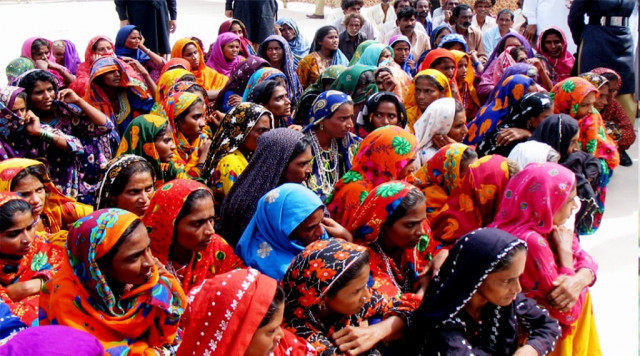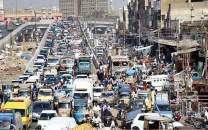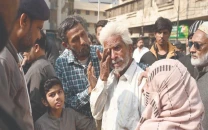As Badin flounders, Pakistan tells UN to stay out
NDMA and PDMA tell international agencies they are managing well on their own.

As starvation prowls through the rain-ravaged fields of southern Sindh, the disaster management agencies are fending off intervention by international humanitarian agencies including the United Nations.
“So far the National Disaster Management Authority (NDMA) and the Provincial Disaster Management Authority (PDMA) have clearly communicated to us that they are in control of the situation and do not require any support from the UN,” said Unicef Sindh chief field officer Andro Shilakadze in an SMS message to The Express Tribune on Saturday. He added, however, that the UN was ready to help should the government ask for it.
In the meantime, he sent around an email, a copy of which is with The Express Tribune. No UN agency in Sindh should do any work that looks like assessments, collection of information or relief operations in response to the new floods, said Shilakadze in the email that was addressed to the World Food Programme (WFP) representative, UN-Habitat and the International Organisation for Migration (IOM).
These agencies should only continue the work that they were already doing in areas hit by the floods from last year. “But if you start working in districts that are [newly] affected and you did not work there before, then it will be perceived by the government as UN engagement in new flood relief, thus, we should not do it,” the email said.
A joint mission of different UN agencies has postponed an August 18 two-day visit to the rain-affected areas. “Taking cognisance of flooding in south Sindh, the UN provincial coordination team has proposed a joint UN mission to the affected areas,” said IOM humanitarian communication information officer Amjad Ali Surhio in another email.
The situation appears to be dire. This much has been acknowledged by National Assembly Speaker Fehmida Mirza who has been in Badin. According to her assessments, the irrigation system has affected 85% of the 1.8 million population. “More than 70,000 displaced people have sought shelter in over 280 camps in the city while a greater number remain without any official support,” she said in a meeting at the DCO’s office on Thursday. Sources in the Badin district government added that Mirza had asked the disaster management agencies to seek support from the WFP.
For their part, Sindh relief commissioner Shazar Shamon who visited Badin on Saturday said that Rs70 million have been released for the relief and rehabilitation. “Another cheque of Rs30 million was handed over to the DCO Badin on Saturday,” he said.
However, despite the government’s efforts and claims, the rescue and relief situation reality is quite contradictory. “During the last seven days our camp has been inhabited by 1,094 people divided from 196 families and around 305 ration bags have been distributed,” said Government Boys High School relief camp in-charge Ibrahim Lohar. The camp is located in Bhugra Memon union council along the coastal belt of Badin and has a population of over 26,000 people. Dr Uqail Abbas added that that there was only one dispensary in the UC. “At the moment I have got a team of one lady health visitor and one dispenser,” he said. “Badin has 46 union councils where the health department is understaffed and unable to assign two or four doctors.”
The Express Tribune could not contact the PDMA director general. However, the deputy director Adeel Shah claimed that the director-general was in Badin with him to monitor the rescue and relief work. Shah was unaware about official correspondence with the foreign humanitarian agencies.
Published in The Express Tribune, August 21st, 2011.



















COMMENTS
Comments are moderated and generally will be posted if they are on-topic and not abusive.
For more information, please see our Comments FAQ